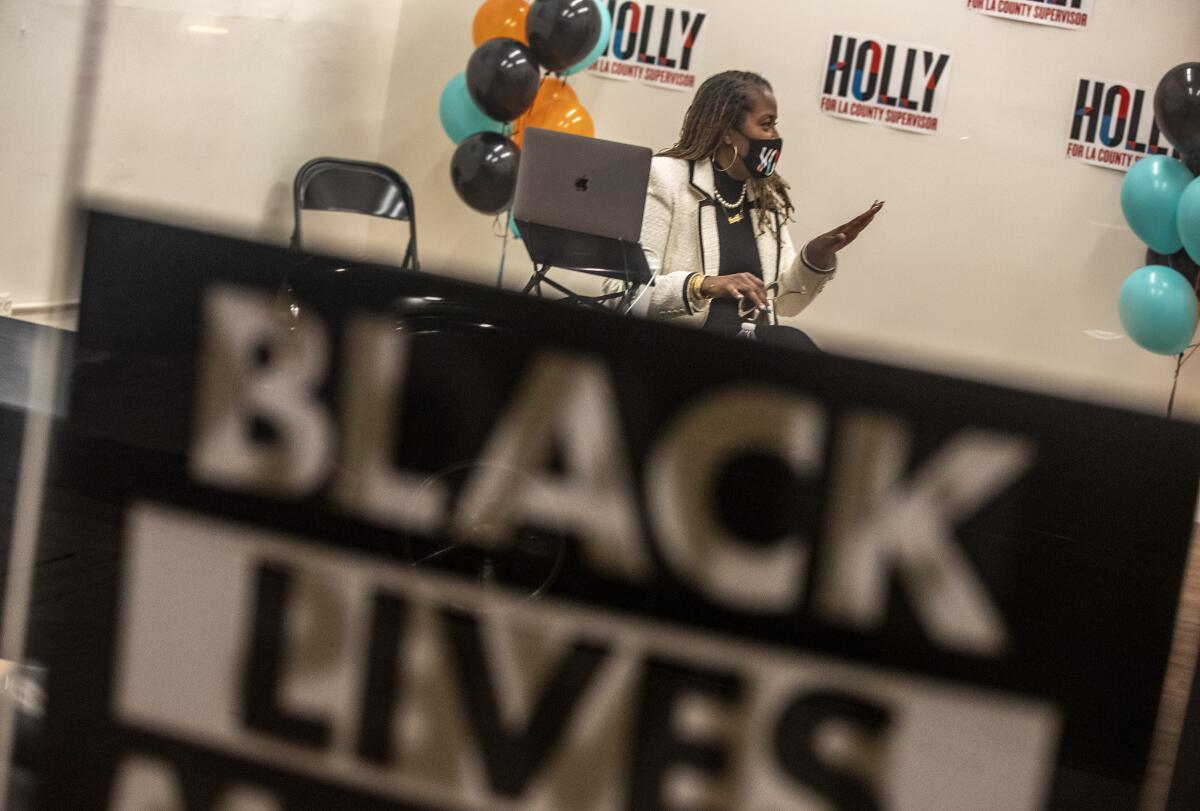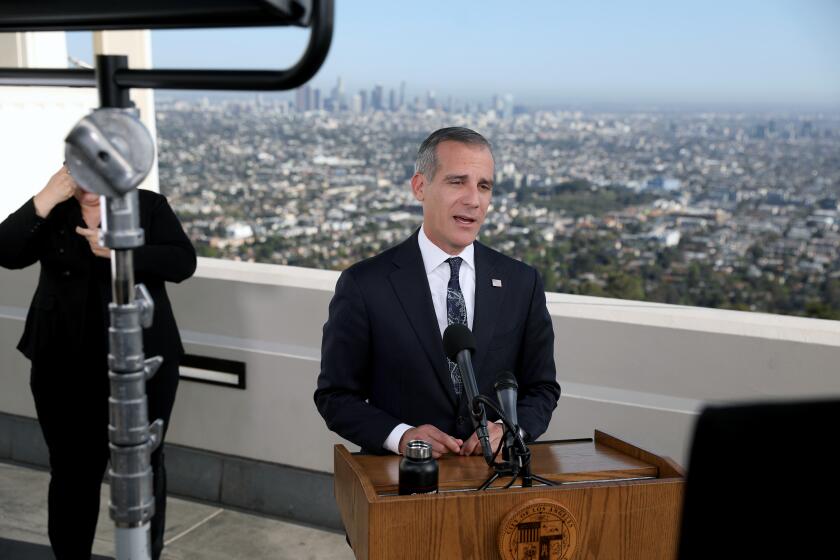L.A. County considering $1,000 for 1,000 residents in basic income program

- Share via
Los Angeles County could soon become the largest county in the country to launch a universal basic income pilot program, providing at least $1,000 a month to at least 1,000 residents.
Supervisors Holly Mitchell and Sheila Kuehl are proposing that the guaranteed income pilot program provide monthly payments for three years. The criteria for participants have not been determined.
The two supervisors said the county must explore anti-poverty measures as permanent county policy, not just as emergency measures to alleviate economic instability caused by the COVID-19 pandemic.
“We must fundamentally shift the idea that people who face financial insecurity have somehow failed, and instead recognize that it is the inequity and lack of access built into our economy and government assistance programs that have failed us,” Mitchell and Kuehl said in their motion.
The Board of Supervisors will vote on the measure at their Tuesday meeting.
Universal basic income has been tested across the country, including in Compton and in Stockton, where 125 randomly selected residents were given $500 per month for two years.
Especially amid the pandemic, policymakers across the country have shown growing interest in testing universal basic income programs that provide monthly payments to enrolled residents with no restrictions for how they spend the money. Several programs have been proposed, including in Tacoma, Wash.; New Orleans; St. Paul, Minn.; and Hudson, N.Y., according to the Stanford Basic Income Lab.
In April, Los Angeles Mayor Eric Garcetti proposed an effort that would provide $1,000 a month to 2,000 families for a year.
Mayor Eric Garcetti included a $24-million Basic Income Guaranteed program in his city budget to be released Tuesday.
In the South L.A. district represented by City Councilman Curren Price, a program expected to launch this summer will provide $1,000 a month for a year to 500 households headed by single parents. Other council members are considering programs for their districts.
Compton announced the Compton Pledge in October, a universal basic income program that will pay $300 to $600 a month to 800 low-income city residents for two years. It is sponsored by the Fund for Guaranteed Income, a charity headed by Nika Soon-Shiong, daughter of Los Angeles Times owner Dr. Patrick Soon-Shiong and a co-director of the Compton Pledge.
L.A. County would need at least $36 million to finance its program as proposed in the motion.
Mitchell said in an interview that the county could potentially finance the program with money from the federal American Rescue Plan Act or President Biden’s infrastructure bill.
“With an influx of federal dollars, this is a moment in time that I wanted to walk through that door — when people need it perhaps the most in recent years,” Mitchell said.
If the motion passes Tuesday, the county chief executive’s office would have 60 days to establish a plan for the guaranteed income pilot program. The program would be part of a “countywide poverty alleviation initiative,” a broader effort created by the supervisors’ motion.
The target population has not been determined, but it might include low-income women who were released from jail or prison within the past seven years, young people without family support, and domestic violence survivors who are the heads of their households.
Kuehl said these populations are among those who struggle to find work and stability.
A basic income is not meant to replace participants’ jobs or discourage work, Kuehl said, but rather the opposite. Research from the Stockton project showed that people receiving basic income found full-time employment more successfully than the control group not receiving payments.
“As my folks used to say, this ties you over,” Kuehl said.
If the program is approved and funded, it would mean at least 4,300 people will eventually be enrolled in a city or county basic income program in L.A. County.
“Importantly, these programs come without the scrutiny and work requirements of programs such as welfare and food stamps,” Mitchell and Kuehl said in their motion.
Times staff writer Dakota Smith contributed to this report.
More to Read
Sign up for Essential California
The most important California stories and recommendations in your inbox every morning.
You may occasionally receive promotional content from the Los Angeles Times.















